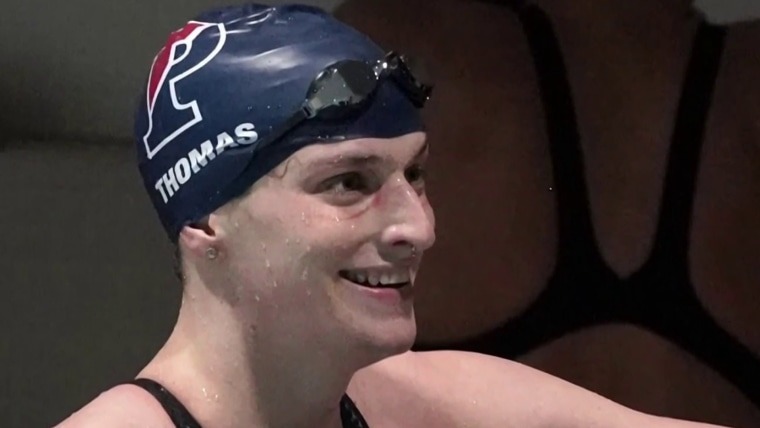Lia Thomas Loses Legal Fight to Compete in Women’s Swimming at 2024 Olympics
Lia Thomas, the swimmer who made history as the first transgender woman to win an NCAA swimming championship, has just faced a major setback. A Swiss court has ruled against her legal challenge, effectively ending her dream of competing in the 2024 Paris Olympics.
The decision has reignited heated debate around transgender inclusion in elite sports — and what fairness really looks like in the competitive world of swimming.
🧑⚖️ The Ruling That Changed Everything
On Wednesday, the Court of Arbitration for Sport (CAS) dismissed Thomas’ case against World Aquatics, the international body that governs swimming. The court stated that Thomas “lacks standing” to challenge the organization’s 2022 policy, which bans transgender women who’ve gone through male puberty from competing in the women’s category.
“Blanket bans preventing trans women from competing are discriminatory,” Thomas said through her attorney. “This is deeply disappointing.”
📜 What the World Aquatics Policy Says

Established in 2022, the World Aquatics policy bars any trans women who have undergone male puberty from entering women’s swimming events — regardless of their current hormone levels or years of transition. Instead, they created an “open category”, which Thomas and other trans athletes are eligible for.
Thomas argued that the rule is “unlawful and discriminatory”, and asked CAS to overturn it. But the court declined to hear the challenge, effectively shutting her out of the 2024 Olympic qualifying trials.
🌊 A Dream Deferred
For Thomas, the ruling ends a dream she’s held since childhood. In a 2022 interview with ABC’s Good Morning America, she shared that competing in the Olympics had always been one of her life goals.
“The CAS decision should be seen as a call to action for all trans women athletes to continue to fight for our dignity and human rights,” Thomas said.
Now, that goal will remain out of reach — at least for this Olympic cycle.
🗣️ The Reactions: Praise, Protest, and Politics
As expected, reactions were immediate and polarizing.
✅ Supporters of the Ban Applaud the Outcome
World Aquatics welcomed the ruling, calling it a “major step forward” in protecting women’s sport. Former NCAA swimmer and conservative activist Riley Gaines also celebrated the news, calling it:
“A victory for women and girls everywhere.”
Gaines, who is currently suing the NCAA for allowing Thomas to compete in 2022, misgendered her in her statement — a move condemned by LGBTQ+ advocates.
❌ LGBTQ+ Advocates Sound the Alarm

Athlete Ally, a nonprofit that promotes LGBTQ+ inclusion in sports, issued a strong rebuke of the court’s decision.
“This is a sad day for sports,” said Hudson Taylor, the group’s founder. “Denying Lia the chance to challenge this ban denies her the basic right to be heard.”
The group emphasized that every athlete, regardless of gender identity, should have the right to challenge discrimination through due process.
🏅 A Historic Journey — And a Controversial Legacy
Lia Thomas rose to global attention in 2022 when she won the NCAA women’s 500-yard freestyle title, becoming the first openly transgender woman to win a Division I championship. Her victory sparked national headlines — and turned her into a symbol of both trans empowerment and a lightning rod in political culture wars.
Whether celebrated as a trailblazer or criticized by opponents of trans inclusion in sports, Thomas has become one of the most visible figures in one of the most heated conversations in modern athletics.
🔍 What’s Next for Trans Athletes?
With this ruling, the path forward for trans women in elite swimming remains narrow. While the “open category” technically exists, it has yet to be widely adopted — and many see it as a segregation tactic, not a solution.
Advocates are calling for international sports bodies to revisit their policies, weighing both scientific research and human rights considerations.
“This isn’t the end of the conversation,” one LGBTQ+ advocate said. “It’s just the beginning of a bigger fight for equity in sports.”
📌 Final Thoughts: A Moment That Will Shape the Future of Sports
Whether you support or oppose the CAS ruling, the implications are far-reaching. Lia Thomas’s case is more than just about one athlete — it’s about how the world defines fairness, identity, and opportunity in the modern sports arena.
And as the world watches the 2024 Summer Olympics, one absence will speak volumes.




